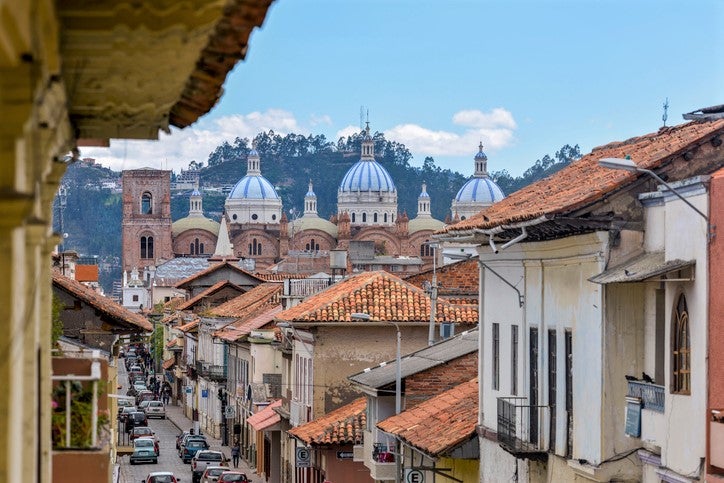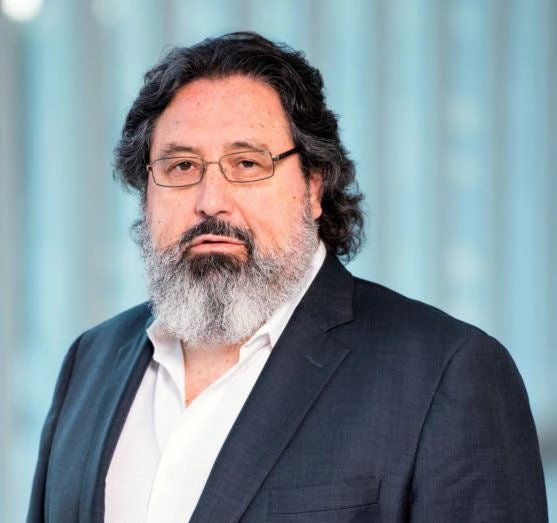 Old town Cuenca, Ecuador Picture
Old town Cuenca, Ecuador Picture
The moment has arrived. In a couple of days, I will be retiring from the World Bank after 32 great years, serving in one capacity or another, in about 85 countries across the globe.
I have loved my work at the Bank and devoted a lot of time to it. Indeed, for a young man from Cuenca, Ecuador, a small country in the Pacific rim of South America, joining, serving, and contributing to advance the global development agenda at the Bank became a “call to duty” that allowed me to realize the Jesuit dictum “Man for Others.” It also gave me a borderless identity, connecting me with people from different geographies, cultures, and histories. It helped me understand that, despite our seemingly differences, we are at the core the same human beings with families, dreams, sorrows, and aspirations.
During this period, I was exposed to but also influenced by a dramatic transformation in development thinking that gradually moved away from a rational utility maximization paradigm to a broader understanding of the complex interplay of economic, social, power structures, environmental, and technological forces that influence behavior and social life.
Poverty, inequality and inclusive economies ceased to be part of a radical discourse. They were mainstreamed into the core of the global development agenda. While a balance was struck between the need to exploit the benefits of markets and tame their excesses, to make sure that they work for all, greater attention began to be placed on the role of learning, advances in science and technology, the primacy of building systems and institutions, and the rule of law, for wealth creation and improved standards of living. Investment in health, nutrition, and education, were no longer seen as expenditure, but rather as a vital allocation of resources for human capital development as the foundation of opportunity, economic growth, and inclusive societies.
In the public health sphere, I got involved in the discussions and efforts to overcome prevailing false dichotomies: infectious vs noncommunicable diseases; primary care vs hospitals; vertical programs vs health systems. Also, health and disease moved away from purely biological categories to embrace their broader social and environmental determinants. At the operational level, “sectoral silos” started to gradually wither away, facilitating the emergence of multisectoral approaches to deal with complex, interconnected causes of ill health and injury, premature mortality, and disability.
Over the years, I had the privilege of working with an extraordinary group of colleagues, who were passionate about their work. As teams from different disciplines, we contributed to strengthening health systems across Latin America and the Caribbean, Eastern Europe and Central Asia, and Africa.
We helped craft a regional response to HIV/AIDS in the Caribbean, making the case in the early 2000s that treatment was prevention. We worked hard to shine analytical light on the growing challenge posed by the increase in the relative importance of noncommunicable diseases, first in Brazil in the late 1980s, and subsequently in Chile, Russia, China, and in sub-Sahara Africa.
We put together a large global emergency response to deal with the Avian Influenza and Food Security crises in 2006 and 2008, respectively, and we were ready again in the summer of 2014, working with governments and partners, to address the Ebola outbreak in West Africa.
In recent years, I contributed to positioning the tobacco taxation agenda as a win-win-win policy for public health, domestic resource mobilization, and equity, within the Bank and across the world in countries such as Colombia, Indonesia, Moldova, Lesotho, Nigeria, Russia, Tonga, Vietnam, and Ukraine.
We also partnered with different institutions to bring mental health out of the shadows, promoting the integration of mental health services as part of primary health programs at the community level, and under the Global Financing Facility (GFF) to address maternal depression and its impact on child health. We also advocated for the need to identify entry points such as psychosocial support as part of the curricula in primary and secondary schools; inclusion of mental health services as part of broad support programs for displaced people and refugees; and raising the importance of mental health as a “top line” investment under health and wellness- in-the-workplace programs. Working with our infrastructure colleagues, we also contributed to making road safety a priority component in transport programs by highlighting the preventable heavy toll of road fatalities and injuries.
Do I fear a void after leaving the Bank? Perhaps at the beginning, but while enjoying the blessing of having a close-knit family, I will move forward to new fronts where I could contribute with knowledge and experience gained over the years, particularly to support the next generation of public health practitioners. I will also do well by remembering the lyrics of a song by the great Argentine folk singer, Mercedes Sosa, “Gracias a la vida que me ha dado tanto” (“Thanks to life, which has given me so much”).
To close, I would like to extend my heartfelt thanks to all at the Bank, partners and governments who have collaborated with and supported me in this wonderful voyage over the past three decades. Para adelante!


Join the Conversation